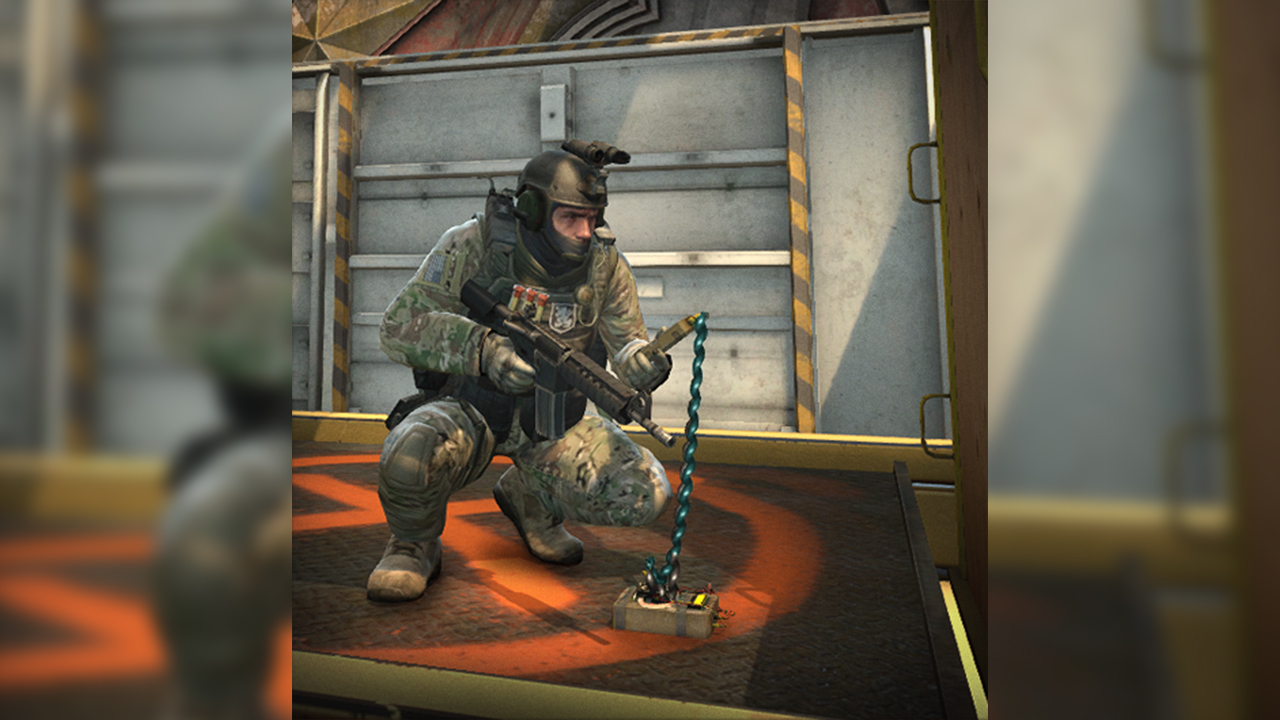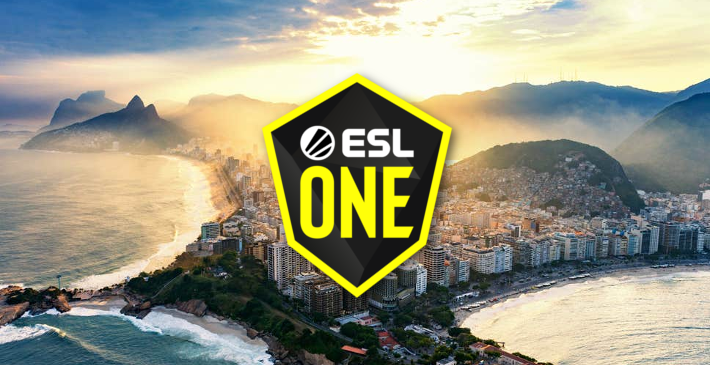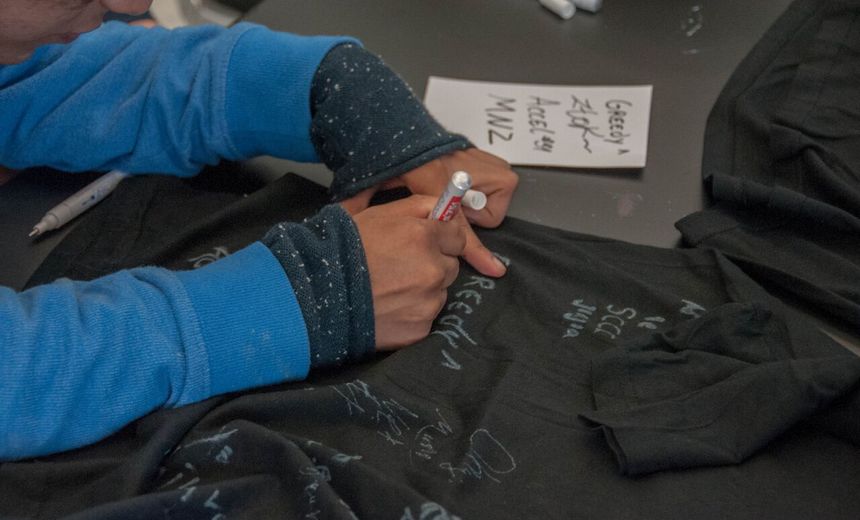List Of Cs Go Majors
CSGO Regional Major Rankings for 2021
- List Of Csgo Major Winners
- List Of Cs Go Majors Baseball
- List Of Cs Go Majors Minors
- List Of Csgo Majors

At the time of writing this article, Fnatic is the record holder for the most CS:GO Majors titles. They won DreamHack Winter 2013, ESL One: Katowice 2015, and ESL One: Cologne 2015. The latter two were won by their superstar roster which is referred to as the greatest team of all time by CS:GO.
CS:GO major and minor esports events: series of tournaments with the schedule of every season, prize pools, stats and participating CS:GO teams in every event. CS:GO Major Championships, more commonly known as CSGO Majors, date all the way back to 2013, and represent the biggest, most prestigious competitions in CSGO esports scene. They have massive prize pools (the newest Major is set to have $2,000,000 in prize money), are hosted in the world’s most fascinating venues, and pack only the best teams. Markus “pronax” Wallsten. Pronax was there from the very first inauguration of the CS: GO Major in. Aviation / Flight Training (UND Aerospace) Captive Wildlife Care and Education ( Unity College in Maine ) Contemporary Christian Music ( Greenville College) Individually Structured Major ( University of Colorado Denver) Recording Industry ( Greenville College).
2021 CS:GO Regional Major Rankings
To ensure that the 2021 Fall Major features the top teams in the world, we will require that current RMR Legends, Challengers, and Contenders demonstrate that they are still in top form.
All teams participating in the next Major will earn their invites through regional rankings, which will be updated based on their performance in upcoming Regional Major Ranking competitions.
Teams competing in an RMR series will receive Major Ranking points based on their placement. The 2021 RMR competitions in all regions will have the following point distribution:
| 2021 Event Point Distribution | ||||||
|---|---|---|---|---|---|---|
| Place | 2020 Standings | RMR 1 | RMR 2 (Optional) | RMR 3 | ||
| 1 | 600 | 1600 | 2000 | 2500 | ||
| 2 | 600 | 1500 | 1875 | 2344 | ||
| 3 | 600 | 1400 | 1750 | 2188 | ||
| 4 | 600 | 1300 | 1625 | 2031 | ||
| 5 | 600 | 1200 | 1500 | 1875 | ||
| 6 | 600 | 1100 | 1375 | 1719 | ||
| 7 | 600 | 1000 | 1250 | 1563 | ||
| 8 | 600 | 900 | 1125 | 1406 | ||
| 9 | 300 | 800 | 1000 | 1250 | ||
| 10 | 300 | 700 | 875 | 1094 | ||
| 11 | 300 | 600 | 750 | 938 | ||
| 12 | 300 | 500 | 625 | 781 | ||
| 13 | 300 | 400 | 500 | 625 | ||
| 14 | 300 | 300 | 375 | 469 | ||
| 15 | 300 | 200 | 250 | 313 | ||
| 16 | 300 | 100 | 125 | 156 | ||
| 17-24 | 100 | – | – | – | ||
Major Invitations
24 teams will be invited to the Major from six different regions based on their Regional Major Ranking.
In total, there are 8 Legend, 8 Challenger, and 8 Contender invitations available.
Each region will be allocated invites to the next Major based on that region’s performance in the preceding Major. Based on the results of the 2019 Berlin Major, the invitations for each region are as follows:
2021 Fall Major Invitation Distribution
| November Stockholm Invitation Distribution | ||||||
|---|---|---|---|---|---|---|
| EUR | CIS | NA | SA | AS | OC | |
| Legends | 3 | 2 | 3 | 0 | 0 | 0 |
| Challengers | 6 | 1 | 1 | 0 | 0 | 0 |
| Contenders | 2 | 2 | 1 | 1 | 1 | 1 |
| Total Invitations | 11 | 5 | 5 | 1 | 1 | 1 |
FAQ
Q. Will there be Minors for the next Major?
A. There will be no Minors ahead of the next Major. Regional Major Rankings will be used to determine all 24 invitations. There will not be a separate path for teams to qualify.
Q. What determines what region a team competes in?
A. Given the circumstances, teams’ regions are determined by their current location.
Q. What happens if a team changes region?
A. Regional Major Rankings only represents a team’s performance relative to other teams in the region. Therefore, any region change by a team will result in a reset of the team’s Major Ranking points.

Q. Can a team change their roster before the event?[UPDATED]
A. When submitting a roster for an RMR event, teams can change up to two members of their prior roster at a cost of 20% of the team’s points, per player. Replacing three or more players between events will result in a points reset.
E.g., if a team registers for the summer RMR competition with 3/5 of their May roster, their RMR points will be reduced by 40%.
Q. Does a team lose points if they make a roster change between RMR events (or the Major), but end up submitting the same roster as before?[NEW]
A. No. Teams only lose points if they submit a roster for an RMR event that is different from the preceding RMR event.
Q. Can a team change their roster during an event?[UPDATED]
A. Yes. Teams can register a reserve player for each event. Between matches, and subject to tournament rules, the team can sub the reserve player in at a cost of 20% penalty to points earned at the event, and can sub the reserve player out for the original player at no additional cost.
Each time the team chooses to sub a reserve player in, they incur an additional 20% penalty to points earned at the event.
E.g., a team that fields a reserve player will receive 80% of the points earned at the event. If the original player returns to the lineup during the event, they will incur no further penalty for that event. They can choose to field the reserve player again later in the event, however they would incur an additional 20% penalty (i.e., they would earn 64% of the points for the event).
Q. If a team changes their roster during an event, what is the roster that earns them points?
A. Substitutions during an event do not affect the roster.
E.g., a team wants to make their substitute a permanent member of their roster. They would lose 20% of their earned points at the current event, and an additional 20% of their total points when they register for the next event with an updated roster.
Q. When does a team get invited to an RMR event (or Major)?[UPDATED]
A. After a team submits their roster, their points are evaluated. After all teams register, invitations are sent to the top teams by RMR.
List Of Csgo Major Winners
Q. What happens if an invited team declines an invitation?
A. If a team declines an invitation to an RMR event or the Major, the next-highest ranked team by RMR receives their invitation.
Q. Who earns points at an RMR event?
A. Only the top N teams will earn points, where N is the number of teams invited by RMR.
E.g., an event that invites top 4 teams by RMR and 12 teams by other means will only generate RMR points for top 4 places. An event that invites all 16 teams by RMR will generate RMR points for all 16 places.

Q. How many points do teams earn if they tie for a position?
A. If teams tie for a position, they receive the average points available for those positions.
E.g., if the first RMR event does not tie-break 3rd and 4th places, both teams get 1350 RMR points.
Q. Who is allowed in the players’ rooms and on the game server during an online match?[NEW]
A. The players, exclusively. Coaches, staff, and others should not be present or in communication with players from the start of a map until it is concluded.
CS:GO Majors – the very definition of top-tier CS:GO events! These events are
as exclusive as they are prestigious, and that’s a perfect combination for the
growing esports industry. That’s why, in this article, we won’t just be telling
you all about this tournament – we’ll also fill you in with the latest news on
where to bet on CS:GO Majors. Not a surprise, right? After all, this is a
betting-oriented website! So, let’s skip the shenanigans and introduce you to
our favorite esports bookies:
| Rank | Gambling Site | Deposit Bonus | Get Started | |
| #1 | Up To €150 | Visit Site | ||
| #2 | 22Bet Esports | 100% Up To €122 | Visit Site | |
| #3 | 100% Up To €200 | Visit Site | ||
| #4 | 10Bet Sports | 100% Up To €50 | Visit Site | |
| #5 | 100% Up To €50 | Visit Site | ||
If you’d like to skip to your desired section quickly, don’t hesitate to use
the link box below:
FAQ
Where to Bet on CS:GO Majors
For those of you who’ve missed it – there’s a short list of our favorite
bookies right above this section and the link box. It consists of the finest
choices for esports betting at the moment. Finest how? Well, by picking any of
those bookies you can rest assured you will be getting the optimal esports
betting service. Whether you’re experienced or just starting out, whether you’re
from the EU or from the States, whether you like to bet big or small, the result
will be the same – you’re going to love our choices! If you would like more information about the specifics of CS:GO betting sites please visit our article dedicated to CS:GO betting sites.

List Of Cs Go Majors Baseball
Key Facts
List Of Cs Go Majors Minors
- The first two years of CS:GO Majors (2013 through 2015), all tournaments
had $250,000 in total prize pool money. With big changes to the CS:GO Major
Championship format made by Valve in late 2015, the prize pools were lifted
to a sensational $1,000,000 starting from the MLG Columbus 2016. - At the time of writing this article, Fnatic is the record holder for the
most CS:GO Majors titles. They won DreamHack Winter 2013, ESL One: Katowice
2015, and ESL One: Cologne 2015. The latter two were won by their superstar
roster which is referred to as the greatest team of all time by CS:GO fans
and experts alike. - Ninjas in Pyjamas (NiP) are the biggest “losers” in terms of CS:GO
Majors. They are holding the record for the most Grand Finals matches lost.
They’ve competed in 5 Grand Finals matches but ended up winning just one
(ESL One Cologne 2014).
A Brief History of CS:GO Majors
The story of CS:GO Majors (as we know them today) dates all the way back to
2013 with the first real CS:GO Major tournament – DreamHack Winter
2013. The event was held in Jonkoping, and featured Fnatic winning on their home
soil carried by JW, flusha, and pronax.
It’s only logical to see several changes being made over the course of CS:GO
Majors’ existence. The latest ones significantly altered the tournament format,
increasing the number of competing teams but also increasing the prize pool
money as well. $250,000 was the prize pool of all CS:GO Majors up until 2016.
More precisely, up until MLG Major Columbus 2016, which was the first Major to
feature the new ruleset with $1,000,000 in prize pool money. More about
tournament format changes further down below.
At the moment, CS:GO Majors are biannual tournaments, meaning they are held
twice per year. In 2018, FACEIT Major: London and ELEAGUE Major: Boston were, by
far, the most popular CS:GO tournaments.
Previous Winners
Continuing with our brief history lesson on CS:GO Majors, here’s a table of
all previous winners:
As you can see, Fnatic is the most successful team as far as CS:GO Majors are
concerned. Still, considering what a dominant team Astralis currently is,
perhaps this will change as they need one more title to tie Fnatic’s record of
three wins.
Tournament Format
As we already mentioned above, CS:GO Majors underwent quite a few changes to
become the tournament series we all know and love today. The most recent changes
did not only increase the total prize pool money and competing teams, but also
significantly altered the tournament format. Here’s what it looks like as of
ELEAGUE Major: Boston 2018.
The New Challengers Stage
This tournament stage was formerly known as Major Offline Qualifiers. It’s
the starting stage for teams dubbed The New Challengers (more on that down
below) in which they’ll fight their way to advance to The New Legends Stage.
The New Legends Stage
This stage (formerly known as the Group Stage) puts the eight teams that have
qualified through The New Challengers Stage against the current Legends teams.
In this stage of the tournament, these teams are not just battling for The New
Champions Stage, but to become The New Legends as well. Once again, more about
team-specific changes down below.
The New Champions Stage
The last stage of all CS:GO Majors – formerly referred to as Playoffs. This
stage features only the top eight remaining teams who will battle it out against
each other for the biggest share of the total prize pool money.
CS:GO Majors Teams
Now let’s see what each of those weird team names represent:
The New Challengers
This group consists of sixteen teams in total. Eight of them are returning
challengers from the previous CS:GO Majors with the remaining eight coming in as
the winners (and runners-up) of the Minors. These teams start the tournament at
the New Challengers Stage for a chance to progress to The New Legends Stage. If
they do so, not only will they continue playing in the tournament, but will also
cement their spot at the next CS:GO Major’s New Challengers Stage.
The Legends
Teams can obtain The Legends status by going through to the New Champions
Stage, regardless of what place they end up at the end of the tournament. This
way, the top teams are under constant pressure of losing their Legends status,
so they have to perform at their very best all the time!
In-Game Specials
During CS:GO Majors, Valve often gives out special awards to their beloved
viewers. We are talking about various in-game items as well as special features
based on that particular tournament. There are some prerequisites to take care
of if you want to be eligible to win some of these special goodies. Here’s
what’s up:
In order to get these goodies, you will have to make sure you’re watching the
Major via a livestream service that allows you to connect your Steam ID. In
other words, you will have to connect your Steam ID to either Twitch.tv, GOTV,
or Steam.tv; all of which are great options to watch CS:GO Majors on.
List Of Csgo Majors

Stickers and souvenir cases are the things you will be hoping to get by
watching CS:GO Majors. Both are inspired by teams (and their respective
players), allowing you to “wear” the colors of your favorite team while you’re
playing the game yourself!
CS:GO Majors FAQ
Where to Bet on CS:GO Majors?
If you’d like more info on where to bet on CS:GO Majors, please scroll back up and you’ll see a section dedicated to exactly that.
How Many Teams Are Competing on CS:GO Majors?
It used to be just sixteen teams competing at the main event. However, with the most recent changes made by Valve, this number has grown to twenty-four. The tournament format has been changed too, making room for extra teams by further expanding the number of stages (and matches played). In our opinion, twenty-four teams is the perfect number! As they say – the more, the merrier!
Are CS:GO Majors the Most Important CS:GO Tournaments?
This is highly arguable, but we’d say that they are. As far as popularity goes, they are at the top of the food chain for sure. Still, there are tournaments such as ECS and ESL Pro League which bring a different perspective to the scene, often delivering great matchups to huge crowds across the globe.
Where to Watch CS:GO Majors?
Believe it or not, there are plenty of ways you can watch not only CS:GO Majors, but most CS:GO tournaments in general. Twitch.tv, YouTube, and HLTV are the most obvious choices these days. They offer the best livestream quality and highly professional hosts and commentators. Keep in mind though, there are some things you need to pay attention to if you want to win special items during CS:GO Majors.
What Kind of Special Items Can I Get by Watching CS:GO Majors?
You can get all sorts of goodies by watching CS:GO Majors. Stickers and souvenir cases, to be more precise. Pick’Em Challenges should be noted too. It allows you to buy team-based stickers and use them to pick the teams you think will win certain matches. For more info, please refer to the In-Game Specials section.
Conclusion
With those last couple of questions (and their respective answers), we are
afraid our CS:GO Majors article is almost done. All
that’s left to be said are a few conclusive words to sum everything up.
So, for starters, let’s all agree that CS:GO Majors are the most prestigious
events on the CS:GO competitive calendar. Sure, other similar competitions such
as ECS and ESL Pro League have that prestigious charm as well, but they still
aren’t at the level of the Majors. The betting aspect confirms that too, as
CS:GO bettors (beginners and seasoned veterans) love these tournaments because
there are lots of opportunities for good bets. Plus, with each passing year,
bookies are increasing their coverage, meaning we’re always getting more bet
types to explore and choose from.
As the CS:GO scene develops, so does its betting counterpart. Luckily for us,
CS:GO as an esports title isn’t going away anytime soon. It sits at the throne
of FPS esports and doesn’t look to be heading in a downward spiral. On the
contrary, its popularity is still growing, meaning that CS:GO betting could be
the pinnacle of esports betting as we know it!